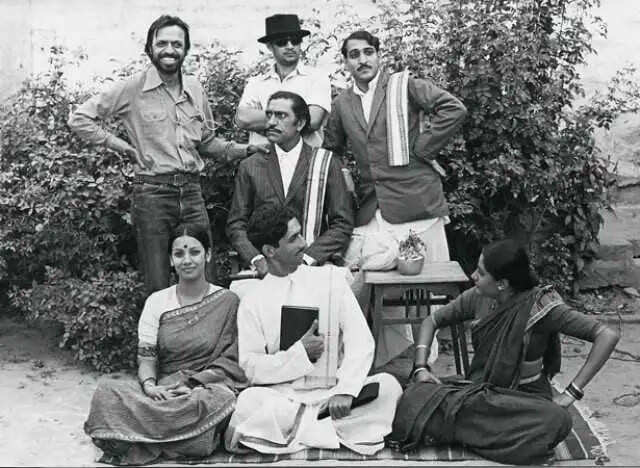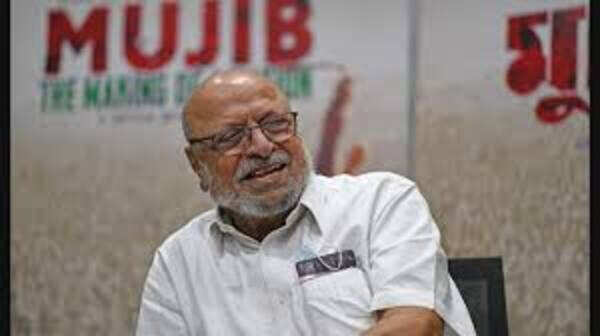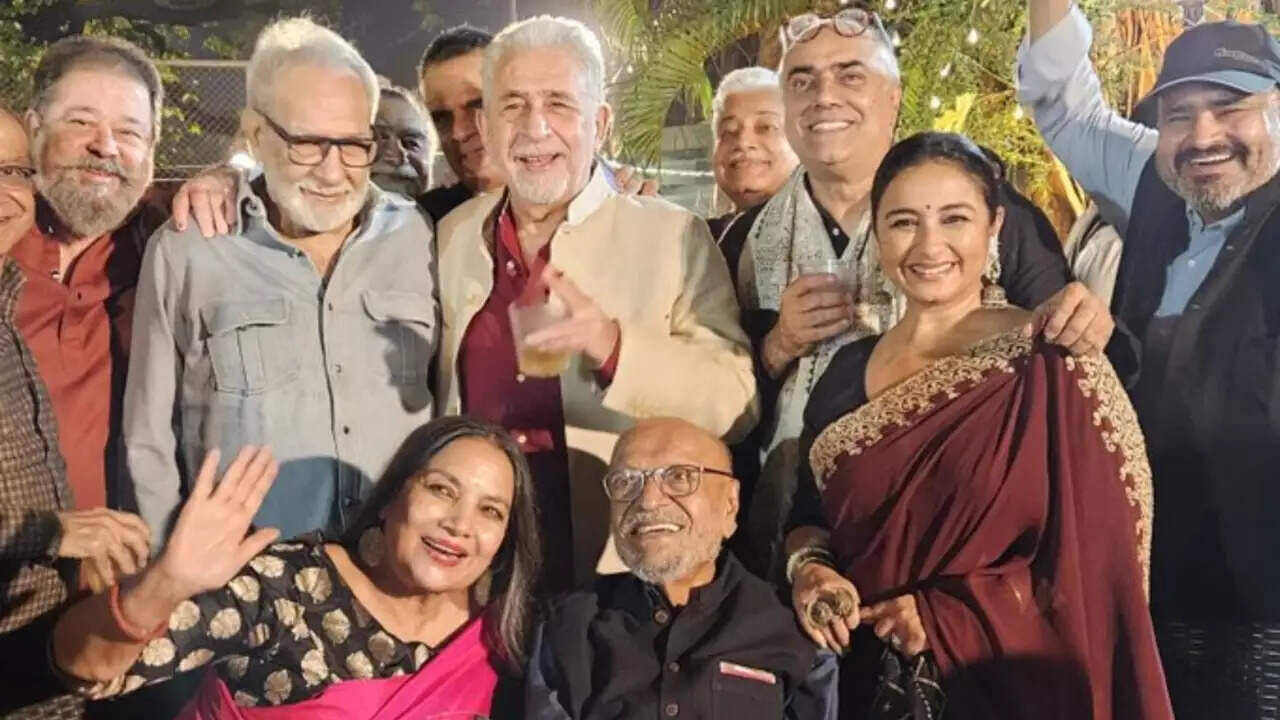Shyam Benegal, a towering determine in Indian cinema, handed away on December 23, 2024, on the age of 90, forsaking an indelible legacy that continues to affect filmmakers and audiences alike. A pioneer of the Indian New Wave, Benegal’s movies resonated with authenticity, tackling social points and reflecting the complexities of Indian life in a manner that was each grounded and reflective. His contribution to cinema went far past his work as a director. He was additionally a screenwriter, editor, trainer, and mentor, shaping the way forward for Indian filmmaking.
Born on December 14, 1934, in Tirumalagiri, Hyderabad, Benegal’s journey into the world of cinema started early. Although he initially pursued a level in Economics at Osmania College, his love for movie led him to ascertain the Hyderabad Movie Society. His ardour for storytelling would solely develop as he later ventured into promoting, the place he directed over 900 sponsored documentaries and advert movies. This expertise would serve him effectively, offering a powerful basis for his later work in movie and tv.Director and actor Guru Dutt’s maternal grandmother and Shyam’s paternal grandmother have been sisters, thus making Dutt and Shyam second cousins. He at all times spoke warmly of his extra well-known cousin, even commenting that at one time he was envious of Dutt’s success when younger.
Benegal’s filmmaking profession blossomed within the Nineteen Seventies, with a sequence of movies that challenged the conventions of mainstream Bollywood. His movies Ankur (1974), Nishant (1975), Manthan (1976), and Bhumika (1977) epitomized the essence of parallel cinema—reflecting India’s social realities with honesty, subtlety, and nuance. Ankur was an exploration of the feudal divide which exists in India, Manthan, based mostly on the story of a cooperative dairy motion, drew consideration to rural struggles, whereas Bhumika delved into the psychological and societal complexities of a well-known actress, exploring themes of fame, private id, and gender expectations. These movies marked Benegal as a director unafraid to confront uncomfortable truths and painting the human situation in all its rawness.

Past his work in cinema, Benegal made vital contributions to tv. His 1988 sequence Bharat Ek Khoj, based mostly on Jawaharlal Nehru’s Discovery of India, introduced the story of the Indian freedom wrestle and the nation’s wealthy cultural heritage into thousands and thousands of properties, additional cementing his place as a storyteller who cared deeply about India’s previous and its future.
Benegal’s affect prolonged past the display. He was a passionate educator, having taught on the Movie and Tv Institute of India (FTII) in Pune, the place he additionally served as chairman throughout two phrases. His tenure at FTII helped form the careers of many younger filmmakers who went on to make their mark in Indian cinema. His position in nurturing new expertise and selling a extra socially acutely aware cinema can’t be overstated. He was additionally recognized for his shut collaborations with actors corresponding to Om Puri, Naseeruddin Shah, Pankaj Kapur, Amol Palekar, Amrish Puri, Shabana Azmi and Smita Patil, whose careers he helped form. He had deep respect for his or her craft and personalities, highlighting his capacity to nurture expertise with care and understanding. He authored three books based mostly on his personal movies: The Churning with Vijay Tendulkar (1984), based mostly on Manthan; Satyajit Ray (1988), based mostly on his biographical movie, Satyajit Ray; and The Market (1989), which was based mostly on Mandi.

A dedicated documentary filmmaker, Benegal made his debut within the style with A Baby of the Streets (1967), a robust movie that highlighted the plight of avenue youngsters. Over time, he directed greater than 70 documentaries and brief movies, at all times with a deal with social points, whether or not it was the struggles of rural India or the complexities of city life. Within the early Nineteen Seventies, Shyam made 21 movie modules for the Satellite tv for pc Tutorial Tv Experiment (SITE), sponsored by UNICEF. This allowed him to work together with youngsters of SITE and many folks artists. Finally he used many of those youngsters in his characteristic size rendition of the traditional folks story Charandas Chor in 1975. The movie, made for Kids’s Movie Society, India, is definitely top-of-the-line youngsters’s movies to have come out of India. It’s unusual that he by no means went again to the style.
Benegal’s cinematic philosophy was grounded in empathy and objectivity. As he as soon as mentioned, “One needs to be as goal as doable… Sympathy is critical. After I say sympathy, I imply empathy so that you will be one with the topic.” He believed that essentially the most highly effective tales have been those who transcended politics, focusing as a substitute on the human facet of the narrative.
Benegal was no stranger to accolades. His work earned him quite a few awards, together with the Padma Shri (1976), Padma Bhushan (1991), and the celebrated Dadasaheb Phalke Award (2005), India’s highest honor in cinema.He additionally received the Filmfare Finest Director Award for Junoon (1979)
Even within the face of well being challenges, Benegal remained concerned in filmmaking, engaged on tasks such because the biographical movie Mujib: The Making of a Nation (2023), in regards to the founding father of Bangladesh, Sheikh Mujibur Rahman. His dedication to his craft, proper till the tip of his life, is a testomony to his ardour for storytelling and his perception in cinema as a instrument for social change.
Benegal’s passing marks the tip of an period in Indian cinema, however his affect will endure. He leaves behind a physique of labor that continues to encourage filmmakers to look past leisure and discover the deeper, usually untold tales of Indian society. Via his movies, his educating, and his writings, Shyam Benegal formed the contours of Indian cinema in ways in which will likely be felt for generations to return.

Benegal breathed his final at Wockhardt Hospital in Mumbai, the place he had been present process remedy for continual kidney illness. He’s survived by his spouse, Nira Benegal, and daughter, Pia Benegal.
In a world of fleeting tendencies, Benegal’s movies stay timeless—a mirrored image of the India he so lovingly portrayed. His legacy is one in every of reality, compassion, and a deep dedication to telling the tales of abnormal folks in extraordinary methods.

